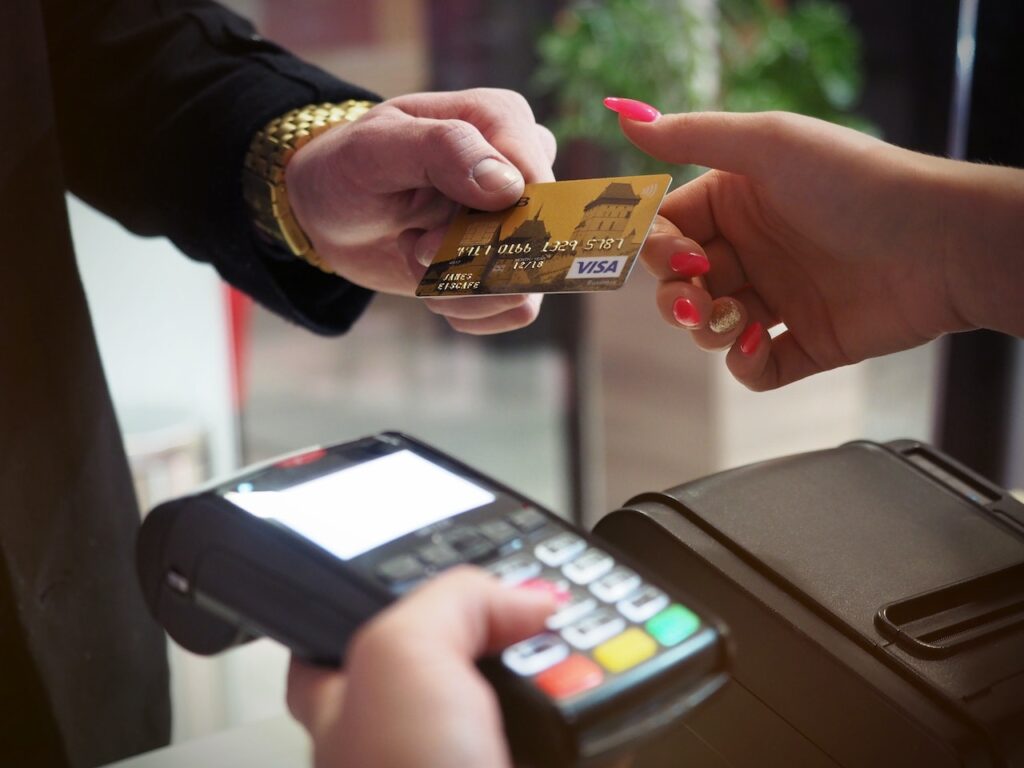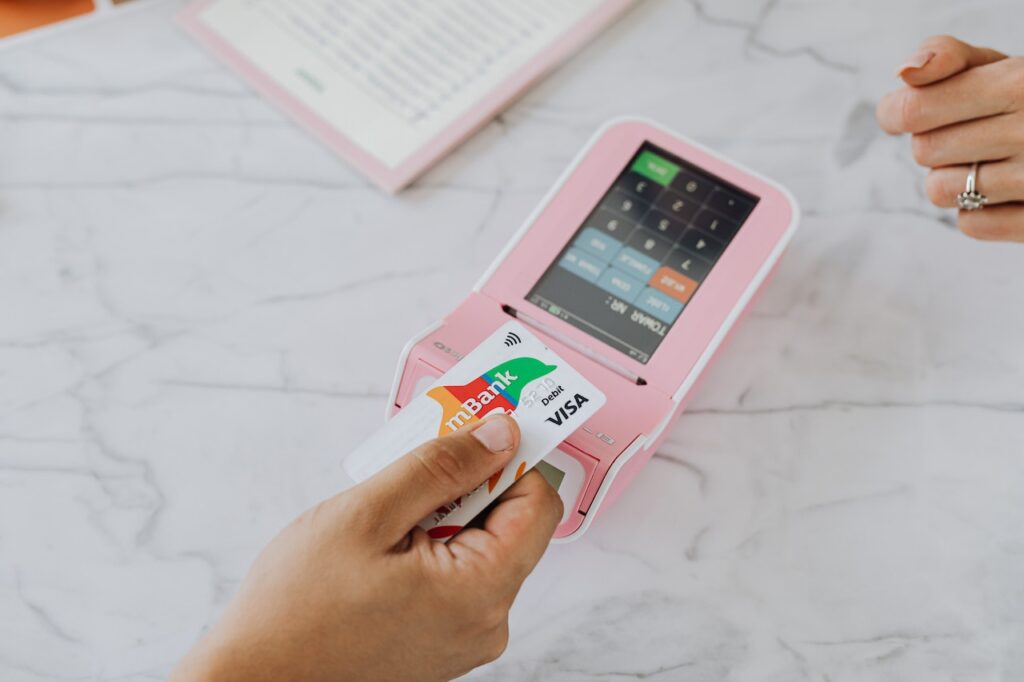Credit card fraud is a serious crime that can result in jail time for those found guilty. In recent years, credit card fraud has become increasingly common, particularly with the rise of online shopping and digital transactions. Despite efforts to prevent credit card fraud, criminals continue to find ways to steal credit card information and use it for their own gain.
Understanding the legal consequences of credit card fraud is important for anyone who uses credit cards, whether for personal or business purposes. Depending on the severity of the crime, individuals found guilty of credit card fraud can face fines, probation, and even jail time. In addition to the legal consequences, credit card fraud can also have a significant impact on victims, who may be left with damaged credit scores and financial losses.
Key Takeaways
- Credit card fraud is a serious crime that can result in jail time for those found guilty.
- Understanding the legal consequences of credit card fraud is important for anyone who uses credit cards.
- Credit card fraud can have a significant impact on victims, who may be left with damaged credit scores and financial losses.
Understanding Credit Card Fraud
Credit card fraud is a serious crime that can result in jail time for those convicted. It involves the unauthorized use of a credit card or account number to make fraudulent transactions. This can occur through various means, including phishing, skimming, and theft.
Phishing is when a fraudster creates a fake website or email that appears to be from a legitimate source, such as a bank or credit card company, to trick the victim into providing their account information. Skimming is when a device is placed on a credit card reader to steal the card’s information. Theft can involve physically stealing a credit card or intercepting mail to obtain a new card.
There are several types of credit card fraud, including friendly fraud, which occurs when a legitimate cardholder disputes a charge they made themselves. This can result in the merchant losing money and the cardholder facing legal consequences.
Credit card fraud can have serious consequences for both the victim and the perpetrator. Victims may experience financial loss and damage to their credit score. Perpetrators can face fines, jail time, and a criminal record.
Credit card holders can take steps to protect themselves from fraud, such as monitoring their accounts regularly and setting up fraud alerts. If fraud is suspected, it is important to report it to the credit card company and law enforcement immediately.
In conclusion, credit card fraud is a serious crime that can have significant consequences. It is important for credit card holders to be vigilant and take steps to protect themselves from potential fraud.
Legal Consequences of Credit Card Fraud
Credit card fraud is a serious crime that can result in severe penalties. If a person is convicted of credit card fraud, they may face jail time, fines, and other legal consequences. In this section, we will discuss the legal consequences of credit card fraud.
Jail Time
Credit card fraud is a serious offense that can result in jail time. The amount of time a person may spend in jail will depend on the severity of the crime. For example, if a person is convicted of credit card fraud involving a small amount of money, they may receive a shorter sentence than someone who committed fraud involving a large sum of money.
Fines and Penalties
In addition to jail time, a person convicted of credit card fraud may also be required to pay fines and other penalties. The amount of the fine will depend on the severity of the crime and the laws of the state in which the crime was committed.
Felony or Misdemeanor
Credit card fraud can be classified as either a felony or a misdemeanor. The classification will depend on the severity of the crime. If a person is convicted of a felony, they may face more severe penalties than if they were convicted of a misdemeanor.
Restitution
A person convicted of credit card fraud may also be required to pay restitution to the victim. Restitution is a payment made to the victim to compensate them for any losses they suffered as a result of the fraud.
Mail and Wire Fraud
Credit card fraud may also be classified as mail or wire fraud if the fraud involved the use of the mail or electronic communication. Mail and wire fraud are federal crimes and can result in severe penalties.
Probation and Criminal Record
A person convicted of credit card fraud may also be placed on probation and may have a criminal record. Probation is a period of time during which the person must follow certain conditions set by the court. A criminal record can affect a person’s ability to get a job or obtain credit in the future.
Forgery and Defraud
Credit card fraud may involve forgery or defrauding the victim. Forgery is the act of creating a false document or signature. Defrauding is the act of deceiving someone in order to gain something of value.
Guidelines
The severity of the legal consequences for credit card fraud will depend on the specific circumstances of the case. However, it is important to note that credit card fraud is a serious crime that can result in severe penalties. If a person is charged with credit card fraud, it is important that they seek legal advice from an experienced criminal defense attorney.
Credit Card Fraud Investigation
When someone suspects credit card fraud, the first step is to sign the back of the credit card and contact the credit card company to report the fraudulent activity. The credit card company will then investigate the fraud and may request additional information from the cardholder, such as bank statements, police reports, and any other evidence that may be relevant to the investigation.
If the credit card company determines that the fraud was committed by someone other than the cardholder, they may involve law enforcement, such as the FBI, to investigate the fraud further. The FBI will work with the credit card company and the victim to gather evidence and identify the perpetrator.
If the perpetrator is identified, they may face criminal charges and potential jail time. It is important to note that credit card fraud is a serious crime and can result in significant consequences.
If someone is facing criminal charges for credit card fraud, it is important to hire an attorney who is experienced in handling these types of cases. The attorney can provide guidance on how to navigate the legal system and may be able to negotiate a plea deal or other favorable outcome for the defendant.
Overall, credit card fraud investigations can be complex and time-consuming, but it is important to report any suspicious activity as soon as possible to minimize the potential damage.
Credit Card Fraud Prevention
Credit card fraud can be a frustrating and costly experience for victims. Fortunately, there are several steps that individuals can take to prevent credit card fraud from occurring. By following these tips, individuals can reduce the risk of becoming a victim of credit card fraud.
Keep Your Credit Report Up-to-Date
One of the most important steps that individuals can take to prevent credit card fraud is to keep their credit report up-to-date. By monitoring their credit report regularly, individuals can quickly detect any suspicious activity and take action to prevent further fraud.
Protect Your Identity
Another important step in preventing credit card fraud is to protect your identity. This can be done by keeping personal information, such as your social security number and date of birth, private and secure. It is also important to be cautious when giving out personal information online or over the phone.
Set Up Fraud Alerts
Many credit card companies offer fraud alerts, which can help detect and prevent fraudulent activity on your account. These alerts can be set up to notify you of any suspicious activity, such as large purchases or unusual transactions.
Be Vigilant with Credit Card Use
When using a credit card, it is important to be vigilant and protect your card from theft or loss. This can be done by keeping your card in a secure location, such as a wallet or purse, and never leaving it unattended in a public place.
Research Merchants Before Making Purchases
Before making a purchase from a merchant, it is important to research the company and ensure that they are reputable. This can be done by reading reviews and checking the company’s rating with the Better Business Bureau.
Stay Informed with Credit Card Fraud News
Finally, it is important to stay informed about credit card fraud news and trends. By keeping up-to-date with the latest news and developments, individuals can better protect themselves from becoming a victim of credit card fraud.
By following these tips, individuals can reduce the risk of becoming a victim of credit card fraud and protect their financial well-being.
The Impact of Credit Card Fraud on Victims
Credit card fraud can have a significant impact on its victims. Victims of credit card fraud can experience a range of negative consequences, including financial loss, damage to credit reports, and even identity theft.
One of the most immediate impacts of credit card fraud is financial loss. When a credit card is stolen or used without authorization, the victim may be liable for any unauthorized transactions that occur before the card is reported as stolen or missing. This can result in significant financial loss, particularly if the unauthorized transactions are large or ongoing.
In addition to financial loss, victims of credit card fraud may also experience damage to their credit reports. Unauthorized transactions can be reported to credit reporting agencies, which can negatively impact credit scores and make it more difficult to obtain credit in the future.
Credit card fraud can also lead to identity theft, which can have long-lasting consequences. Identity theft occurs when a thief uses stolen personal information to open new accounts or engage in other fraudulent activities. This can result in significant financial damage, as well as damage to a victim’s reputation and credit history.
Merchants who sell goods or services can also be impacted by credit card fraud. When a merchant accepts a fraudulent credit card payment, they may be liable for the cost of the transaction. This can result in financial loss for the merchant, as well as damage to their reputation.
Overall, credit card fraud can have a significant impact on victims, merchants, and credit card companies. It is important to take steps to protect against credit card fraud, such as monitoring credit reports and reporting any unauthorized transactions immediately.
Credit Card Fraud in the Digital Age
With the rise of digital transactions, credit card fraud has become a major concern for financial institutions and consumers alike. In the past, credit card fraud was typically accomplished through physical theft of the card or skimming of the card’s information. However, with the prevalence of online shopping and digital payments, credit card fraud has taken on new forms.
One common form of credit card fraud in the digital age is phishing. Phishing scams involve fraudulent emails or websites that trick users into providing their credit card information. These scams can be difficult to detect, as the emails and websites often look legitimate.
Another form of credit card fraud is the use of stolen credit card numbers on the dark web. Criminals can purchase stolen credit card information on black market websites and use it to make fraudulent purchases. This type of fraud can be particularly difficult to trace, as the transactions may occur in different countries and involve multiple parties.
In addition to these digital forms of credit card fraud, traditional methods such as physical theft and skimming still pose a threat. Criminals may steal credit cards or use skimming devices to steal card information at point-of-sale terminals.
The consequences of credit card fraud can be severe, including jail time for those convicted. In the United States, credit card fraud is a federal crime that can result in up to 20 years in prison and large fines. Debit card fraud can also result in jail time, as it is considered a form of theft.
Overall, credit card fraud is a serious issue in the digital age. Consumers should take steps to protect their credit card information, such as monitoring their accounts regularly and being cautious when providing their information online. Financial institutions should also invest in measures to prevent and detect credit card fraud, such as fraud detection software and employee training programs.
Credit Card Fraud in Different Jurisdictions
Credit card fraud is a serious offense that can lead to jail time, fines, and other legal consequences. The penalties for credit card fraud vary depending on the jurisdiction where the crime was committed. In North Carolina, for example, credit card fraud is a felony offense that can result in up to 15 years in prison and fines of up to $50,000.
The legal system in each jurisdiction has its own rules and procedures for handling credit card fraud cases. In some jurisdictions, the burden of proof is on the prosecution to show that the defendant knowingly used a stolen credit card or committed fraud. In others, the burden of proof may be on the defendant to prove their innocence.
The Fair Credit Billing Act (FCBA) is a federal law that protects consumers from unauthorized credit card charges. Under the FCBA, consumers have the right to dispute charges on their credit card statements and to have the charges investigated by the credit card company. However, the FCBA does not protect consumers from all types of credit card fraud, and it does not provide criminal penalties for those who commit credit card fraud.
In summary, credit card fraud is a serious offense that can result in significant legal consequences. The penalties for credit card fraud vary depending on the jurisdiction and the legal system in place. Consumers can protect themselves from credit card fraud by monitoring their credit card statements and reporting any unauthorized charges to their credit card company.
Frequently Asked Questions
What is the punishment for credit card fraud?
The punishment for credit card fraud varies depending on the severity of the crime. In general, credit card fraud can result in fines, probation, and even jail time. The severity of the punishment depends on the amount of money involved, the number of victims, and whether the fraud was committed online or in person.
Do police investigate credit card theft under $500?
Yes, police do investigate credit card theft under $500. Even if the amount stolen is small, it is still considered a crime and can result in serious consequences. The punishment for credit card theft under $500 may be less severe than for larger amounts, but it is still a criminal offense.
Can you go to jail for using someone’s credit card without permission?
Yes, you can go to jail for using someone’s credit card without permission. This is considered credit card fraud and can result in fines, probation, and even jail time. The severity of the punishment depends on the amount of money involved, the number of victims, and whether the fraud was committed online or in person.
How often do credit card frauds get caught?
The rate of credit card frauds getting caught varies and is difficult to determine. However, with advances in technology and increased security measures, it is becoming more difficult for criminals to commit credit card fraud without getting caught. It is important for individuals to monitor their credit card statements regularly and report any suspicious activity to their bank or credit card company.
What is the jail time for debit card fraud?
The jail time for debit card fraud varies depending on the severity of the crime. In general, debit card fraud can result in fines, probation, and even jail time. The severity of the punishment depends on the amount of money involved, the number of victims, and whether the fraud was committed online or in person.
Does the FBI investigate credit card fraud?
Yes, the FBI investigates credit card fraud. The FBI has a dedicated unit that investigates financial crimes, including credit card fraud. The FBI works closely with other law enforcement agencies and financial institutions to identify and prosecute individuals involved in credit card fraud.





